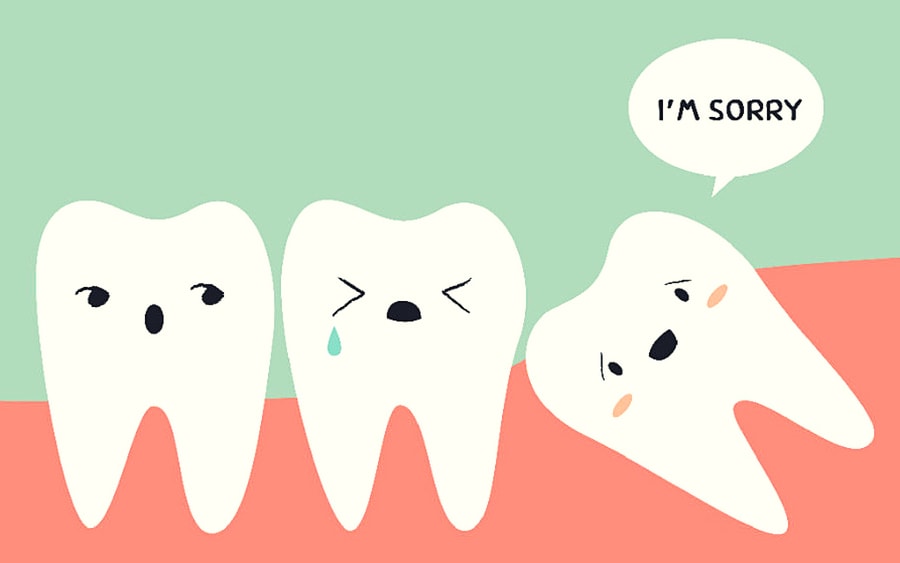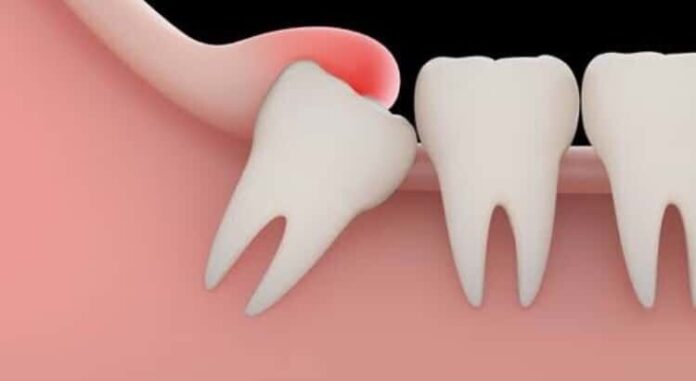Wisdom teeth are molars, the toughest, widest teeth that grind food. But some individuals do not have these wisdom teeth. These are the ones mostly missing from the mouths of adults. Experts say that the jaws have changed over the years because of changes in the diet. You are more likely to have problems with these molars than with any other teeth. Every year, millions of wisdom teeth are extracted or removed. A top reason is an impaction when the tooth might not have adequate room to come out from the gum like it is supposed to. The signs wisdom teeth are coming in are many, but one must know about these signs. Wisdom teeth often grow crooked, in sideways, or otherwise uneven. As they develop, they can thrust on other teeth, causing issues of misalignment and overcrowding for them as well.
Table of Contents
Purpose and Function of Wisdom Teeth
Wisdom teeth are thought to be helpful to the ancestors who ate diets comprising of rougher foods such as reed plants and sticks. As teeth fell out or wore down, wisdom teeth offer replacements. These days, with softer diets and modern advancements in oral hygiene, we do not need these replacement teeth, but they still develop. Basically, the mouth can hold 28 teeth, but there are about 32 teeth all fighting for space if the wisdom teeth are there. The signs wisdom teeth are coming in damage the nerve and bone, overcrowding, and infection.

How do find out if these teeth are coming in?
A dental X-ray can be the first sign that your wisdom teeth are on their way. Especially, an X-ray imprisons the jaws and teeth in an image and can disclose the location of your wisdom teeth and if they are close to coming in. Without an X-ray, you might know your wisdom teeth are coming in as you are starting to see some unlikable symptoms. A few common signs your wisdom teeth are all set to get through comprise:
- Pain in the jaw
- bleeding in the gums or tender gums
- a bad taste in your mouth
- inflammation of the gums, typically at the back of second molars
- problem opening your mouth wide
- bad breath
The pain is basically mild, but you might experience a rare stab of sharp pain. It might also be uncomfortable or painful to chew using the molars near where your wisdom teeth are about to get through. These symptoms are usually because of wisdom teeth are being impacted, which means they are trapped under the gum or do not have adequate space to break through completely. In several individuals, the impacted wisdom teeth can cause inflammatory dental disease, which may damage nearby teeth and jawbone.
One of the most popular signs wisdom teeth are coming in is that you may experience a low-grade fever. You may also see a small flap of gum, known as a pericoronal flap on the area of the budding tooth.
Signs that indicate that everything is not perfect
While tenderness, mild pain, and other common symptoms can take place, you should be aware of signs of problem that necessitate a dentist’s assessment. A dentist should always evaluate bleeding gums, especially when accompanied by jaw pain and evident gum swelling. Even if there are no wisdom teeth problems, persistent bleeding gums are a concern, as it can point out gum disease.
Signs that might indicate potentially critical dental problems are:
- shifting or loose teeth
- sores within your mouth
- receding gums
- constant dry mouth
- tooth sensitivity
- toothache
- broken or cracked tooth
- damage to a bridge, filling, or crown
- cheek or gum swelling
Potential complications of wisdom teeth
New teeth coming out through the gums can cause pain, whether you are a teething baby or an adolescent whose wisdom teeth are thrusting through. Just the provisional injury to gum tissue is adequate to cause pain and swelling. The main reason wisdom teeth pose a hazard is just that the adult mouth does not typically have room for four new molars. Due to this, impacted wisdom teeth can arrive at irregular positions and thrust against the current teeth. This can occur well prior to a wisdom tooth comes into the gum line. An impacted wisdom tooth thrusting against the root of the neighboring molar will cause jaw pain and potentially cause a damaging change to the position of your teeth. An impacted tooth typically necessitates extraction.
Disease and decay
The process can become more complex when wisdom teeth have come in partially, enabling bacteria to gather under the gum line so that an infection grows. This type of infection causes more serious symptoms. The flap covering the tooth can lead to pain and become swollen, resulting in pericoronitis.
Gum disease is also a hazard with impacted wisdom teeth, and if the condition is appropriately treated, the loss of teeth and bone can occur. Moreover, an impacted wisdom tooth can also become decayed or rot on the back of the second molar, probably exposing the nerves. An impacted wisdom tooth can also develop a cyst or tumor, causing further symptoms and serious complications, such as bone or tooth loss.
Tips to prevent complications
By getting normal dental checkups and intermittent X-rays done, you can stay away from any wisdom teeth issues. You can as well decrease your risk for problems if you see a dentist on time when symptoms develop.
Wisdom Teeth Treatment
The most popular wisdom teeth symptoms treatment is the removal of the teeth. This process is usually done at a dentist’s clinic in local or general anesthesia. These options and any complications will be discussed prior to the extraction process. If your wisdom teeth have erupted through the surface of the gums already, they can be removed comparatively easily. Impacted wisdom teeth can be a little more complex to remove. A cut is made via the surface of the gum on top of the tooth. After that, any bone covering the tooth should be removed. Then the tooth is extracted; at times, the dentist will need to cut the tooth into many pieces to salvage as much bone as possible and avoid cutting bone unnecessarily or risking nerves and fragile tissues. Wisdom teeth extraction is a common process and is likely the most excellent solution to ease your wisdom teeth symptoms.
Of late, it has become very much rare for wisdom teeth symptoms to precede their removal. Dentists are more likely to suggest that wisdom teeth be eliminated before they become an issue for oral health. Even if you experience wisdom teeth issues, you should relate this information to your dentist right away.
Get the help of a Dentist
Some dentists suggest removing wisdom teeth if they do not emerge fully. Most dentists think it is better to eliminate wisdom teeth at a younger age, prior to the bone and roots are fully formed, and when recovery is usually faster after surgery. Hence, some young adults have their wisdom teeth pulled prior to the teeth cause issues. As per the experts wisdom teeth removal might be essential if you experience alterations in the area of those teeth, for instance:
- Repeated infection of soft tissue at the back of the lower last tooth
- Pain
- Tumors
- Fluid-filled sacs (cysts)
- Damage to nearby teeth
- Extensive tooth decay
- Gum disease
The decision to eliminate wisdom teeth is not always clear. Talk to your oral surgeon or a dentist about the health and position of your wisdom teeth and what is best for your situation.
Most patients have some doubts about the prospect of oral surgery, so it is important to discuss these in advance with your surgeon so that you are making a well-versed decision as to whether to carry on with the intervention. You must also be sure that you know all of your surgeon’s pre-operative and post-operative instructions so that you can reduce the risk of problems.

Many patients will have all four wisdom teeth removed at the same time if they choose to do so. Discuss your preferences with your dentist, and feel free to ask any questions that you may have about the treatment. Make sure that you are knowledgeable and at ease throughout the process to schedule your wisdom tooth consultation.
Conclusion
Wisdom teeth can lead to many issues if they go neglected, even if you are not suffering from any kind of pain. It is important to look out for symptoms that your wisdom teeth are coming in or that there might be an issue. If you find an issue with your wisdom teeth or see signs wisdom teeth are coming in, talk to a dentist to ensure these teeth will not cause problems if you opt not to eliminate them.
Complications from wisdom teeth can lead to tooth decay and gum disease, among other possible issues. The chances of a straightforward extraction and smoother recovery are enhanced if you reply to signs quickly that your wisdom teeth are coming in.












